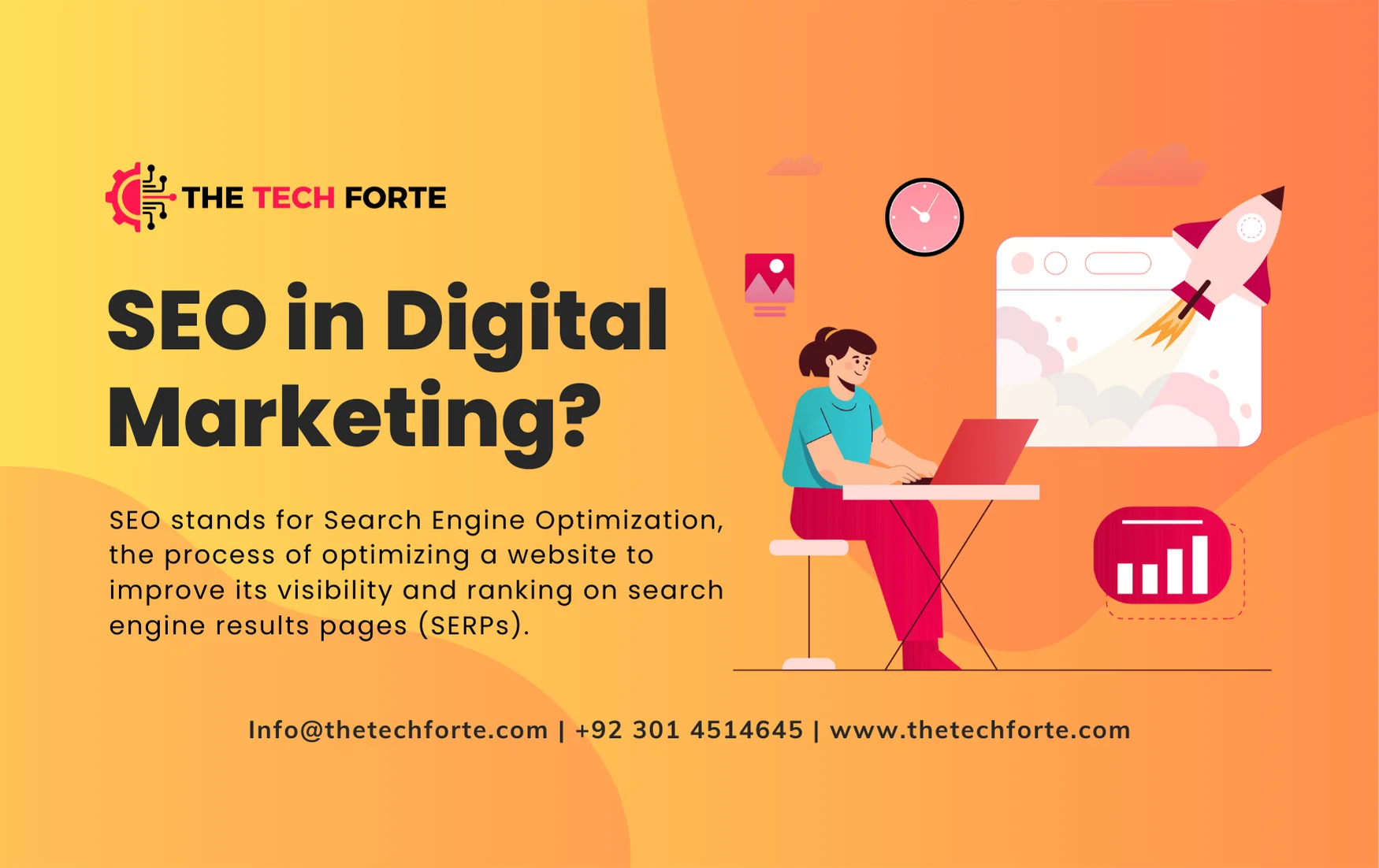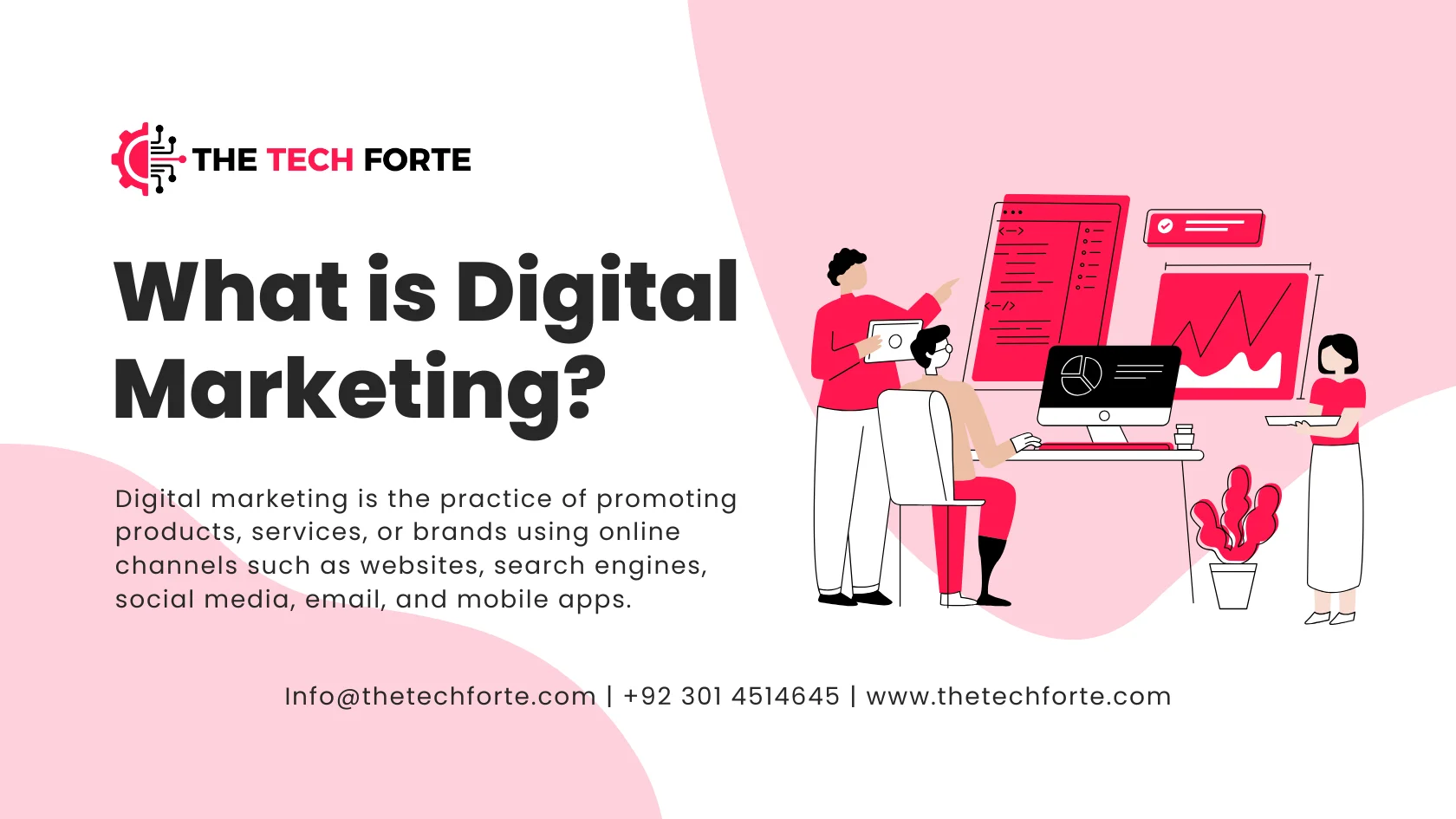
What is SEO in digital marketing?
SEO stands for Search Engine Optimization and refers to the procedure applied to maximize a website’s technical setup, content appropriateness, and link popularity so that its pages are easily discoverable, more appropriate, and popular towards search queries of users, and as a result, search engines position them higher. Various SEO methods, including core web vitals optimization and good quality relevant content, can assist you in developing a robust presence and better search engine rankings.
Search engines suggest SEO activities that serve both user search quality and a page’s ranking by showcasing content that satisfies user search requirements. These involve the application of apt keyword phrases in titles, meta descriptions, and headlines (H1), showcasing descriptive URLs with key terms instead of sequences of numbers, and schema markup to define the page’s meaning content, among other SEO marketing best practices. Focusing on valuable content and avoiding black hat techniques like keyword stuffing ensures that your online presence remains credible and aligned with major search engines’ guidelines.
Search engines assist individuals in locating what they are searching for on the internet. Whether you want to conduct research on a product, find a restaurant, or make a travel reservation, search engines are a typical point to begin when you require information. Business owners get a wonderful opportunity to channel relevant and qualified traffic to their website.
Search engine optimization (SEO) is the process of aligning your website to be higher up on a search engine results page (SERP) so that you get more traffic. The goal is usually to be ranked on the first page of Google results for search phrases that are most important to your target market. Therefore, SEO is just as much about knowing what your users want and need as it is about the technical aspect of how to set up your site. Through the research of every target keyword, you can create SEO content that will correlate with user intent, driving more search engine traffic.
Here are the basics of SEO in Digital Marketing:
How do search engines work?
Search engines deliver answers for any query a user types in. To make this possible, they scan and interpret the massive web of websites across the internet. Behind the scenes, they use complex algorithms that decide which results should appear for a given search. Leading search engines depend on crawlers to index web pages, evaluating elements such as site speed, layout, and content quality to determine how prominently those pages should rank in search results.
Why SEO focuses on Google
For most people, the phrase “search engine” instantly brings Google to mind—and that makes sense since Google holds roughly 83% of the global search market. Because of this dominance, most SEO strategies focus heavily on what performs best on Google. To optimize effectively, it helps to understand how Google operates and why. The platform relies on artificial intelligence along with several other ranking factors to decide which pages appear higher, making it essential to keep your content relevant, useful, and user-focused.
What Google wants
Google is built to give users the best possible search experience. In simple terms, that means showing the most relevant results, and doing it fast.
At the heart of this experience are two things: the search term a user types in, and the results that appear in response.
For example, if you type “TheTechForte guides and tutorials,” the request is clear. Google easily understands the intent and shows TheTechForte’s own page at the top of the results.
From Google’s point of view, that’s a successful outcome. The searcher finds exactly what they were looking for, and the experience feels smooth. For website owners, this shows why creating high-quality content that matches search intent is so important. When your content directly answers what people are searching for, you increase your chances of earning those valuable top spots in organic search results.
How Google makes money
Google’s success depends heavily on people trusting and relying on its search engine. The company builds that trust by showing results that feel useful and relevant.
At the same time, Google offers businesses the chance to buy paid placements at the very top of the search page. These appear with a small “Ad” label, but otherwise, they look very similar to regular search results. This design is intentional—many users click without noticing they’re ads.
Google earns money when someone clicks on these pay-per-click (PPC) ads, which are managed through the Google Ads platform. You’ll notice these most often with broad or commercial searches, like when people are shopping or comparing services.
And the numbers are huge. In 2024, advertising brought in more than 76% of Google’s $348 billion revenue. So, while search remains Google’s core product, the real financial backbone of the company is its advertising business.
The anatomy of search results
Search Engine Results Pages (SERPs) are made up of two types of listings: paid search results and organic results. Paid results generate revenue for Google, while organic ones don’t. Instead, Google decides which sites appear organically by analyzing factors like relevance, quality, and overall authority. Depending on the search, Google may also display extra elements such as maps, images, videos, or even featured snippets.
The number of ads on a SERP often depends on the intent behind a search. For instance, if you type in “shoes,” most of the top listings you see will likely be ads. In fact, you might need to scroll before reaching the first organic result. Why? Because the query suggests that you may be ready to buy, countless shoe brands are willing to pay for that visibility through Google Ads.
But not every search works this way. Take the query “Atlanta Falcons.” Since this mostly refers to the professional football team, you’ll notice Google shows a mix of results—news articles, a knowledge panel, and the team’s official site. This blend happens because Google can’t pinpoint a single intent. Some users may want stats, others may be looking for updates, while some may just want the homepage. Because there’s no clear sign of purchase intent, advertisers don’t usually bid on this keyword, and you won’t see many ads.
Now, let’s adjust the query slightly to “Atlanta Falcons hat.” Suddenly, the SERP changes. Ads begin to appear because Google now interprets that you’re shopping for merchandise. Advertisers see this as a high-value keyword, so they compete for those placements.
Beyond ads, organic rankings are also influenced by off-page SEO factors. Strong external links, high-quality backlinks, and brand mentions from trustworthy sites help signal to Google that your content is reliable. This, in turn, can improve your chances of ranking higher in organic search results.
The role of SEO marketing
The main purpose of SEO is to improve your visibility in organic search results. Unlike paid options such as Google Ads, shopping ads, or local search campaigns, SEO focuses on boosting your website’s long-term ranking without ongoing ad spend.
At first glance, it may seem like ads and other features on the search results page push organic listings further down. But the truth is, SEO remains one of the most powerful and cost-effective digital marketing strategies. Think about it—Google handles billions of searches every single day, and organic results make up a huge share of that traffic. Every visitor who lands on your site through SEO is essentially free, aside from the initial effort and maintenance.
Of course, success doesn’t come without tracking progress. Tools like Google Analytics and Google Search Console can help you measure performance—whether it’s monitoring organic traffic growth, keyword rankings, or conversion rates. With these insights, an SEO expert can refine strategies over time. For example, they might improve internal linking, update old content, or adjust keyword targets to better align with user intent.
If you’re just starting with SEO, keyword research is the best first step. Once you know what people are searching for, you can move on to optimizing your content and pages. And if your goal is to attract customers in a specific region, exploring local SEO strategies is essential.






